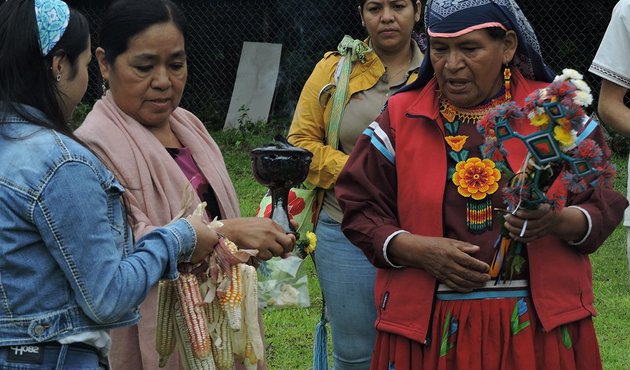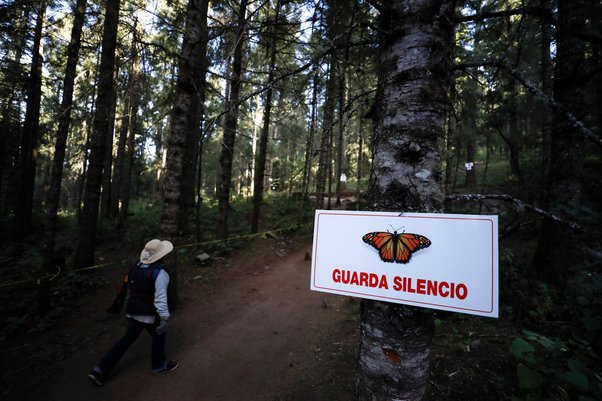The current global health pandemic and its impacts on mankind has led us once again to question humanity’s relationship with nature, the way we use the common goods and for what purpose. It has exposed the varying relationships and perspectives that different communities, including urban, rural and indigenous, have with the natural world, and the synergies needed to defend nature and stand up for a dignified life for all.
Recently, Mexico moved towards ratifying the Escazú Agreement - one of the most important international agreements on environmental matters in the region. On November 5th 2020, the Senate unanimously approved the Agreement’s resolution, which proposes a transformation of environmental governance that places human rights at the centre. However, some steps remain in finalizing the ratification process. Mexico still needs to publish the Agreement in the Official Gazette of the Federation and deliver it to the United Nations Secretariat.
The Senate’s approval is a significant advance in terms of protection. However, those who have individually and collectively defended the land and environment in Mexico have experienced considerable violence against them.
The country’s context is complex. Various factors influence socio-environmental conflicts, such as inequality, corruption, impunity, lack of law enforcement and obstacles to access to justice—all of those affecting the protection and access to justice of attacked defenders.
The current federal administration continues to reproduce a stigmatizing discourse against those defending the environment despite pressure from civil society and various international organizations that repeatedly urge the government to adopt measures to shift this reality. Even though Mexico legally created the Protection Mechanism for Human Rights Defenders and Journalists in 2012, the state’s response so far has been reactive, individualized and insufficient.
The federal government has also been regressive in its duty to adopt a comprehensive public policy to create conditions conducive to defending human rights in Mexico. In the midst of the pandemic, on October 21st, it decided to eliminate the Trust for the Protection of Human Rights Defenders and Journalists, which ensures the financial support to run the Mechanism, along with other 108 trusts. This decision may seriously jeopardize the operation of the Mechanism, as well as the life and integrity of its beneficiaries.
Finally, we cannot forget that beyond ensuring the operation and effectiveness of the Protection Mechanism, the will of the governments at the federal and local levels to assume their responsibility for the protection of human rights and the environment is fundamental. Long-term structural and institutional changes are crucial to solve and prevent future socio-environmental conflicts, primarily when they result from violations of recognized rights.
Welfare with a human rights approach
In 2019, Latin America was, once again, positioned as the deadliest region for land and environmental defenders. Global Witness’ report Defending Tomorrow, released in July this year, 18 cases were documented. Mexico ranked fourth globally that year amongst the countries with most killings.
The various socio-environmental conflicts at play here have a common root, mostly historical. They are rooted in the violation of human rights, mainly the right to autonomy, territory, self-development, and indigenous and communities’ right to a prior, free and informed consultation before the installation of megaprojects or extractive ones. There are further fundamental rights that are being trampled by irresponsible business and projects, such as the right to water, to a healthy environment and food.
According to the reports prepared by the Mexican Centre of Environmental Law(CEMDA) on the situation of environmental defenders in Mexico, 499 environmental activists were attacked between 2012 and 2019. In 2019 alone, CEMDA documented 39 attacks; almost a third were murders, resulting in 15 defenders killed and one attempted murder.
It is highly worrying that homicide continues to appear as one of the primary attacks against those defending the environment, land and territory. Even more so in the absence of a Trust that guarantees protection measures for defenders.
Many government authorities have been shown to be responsible for this violence, mostly at the local and municipal level. This scenario continues to occur in 2020 and has worsened in the context of the current COVID-19 pandemic.
It is time that the commitment assumed by the Mexican State with the ratification process of the Escazú Agreement becomes a reality. It is essential for the government designs and implements public policies that comprehensively and thoroughly address the complexity of the violence that persists against environmental defenders, including in the context of gender-based violence in the country.
The protection of environmental and human rights defenders requires a thorough approach which goes beyond ensuring they can perform their role but can also fully exercise their rights, including participation, access to justice, information and protest.


